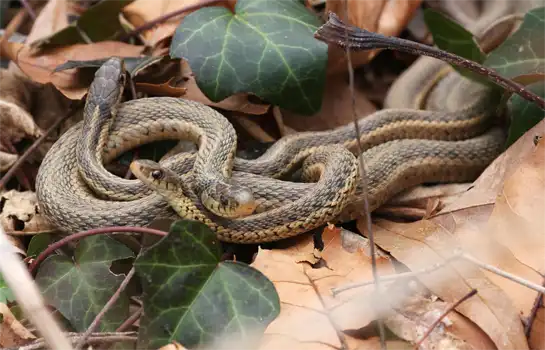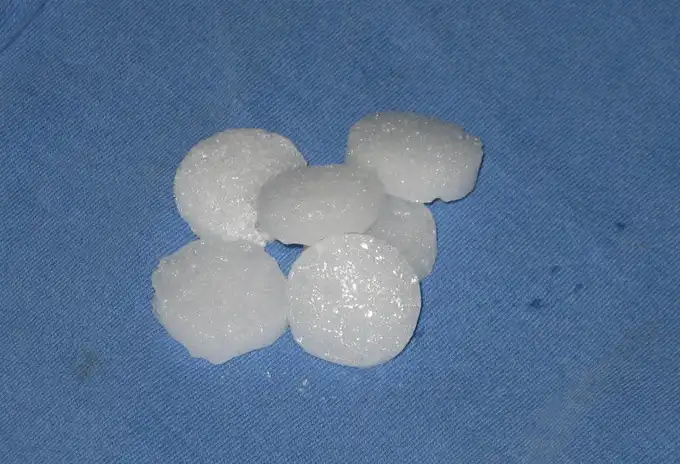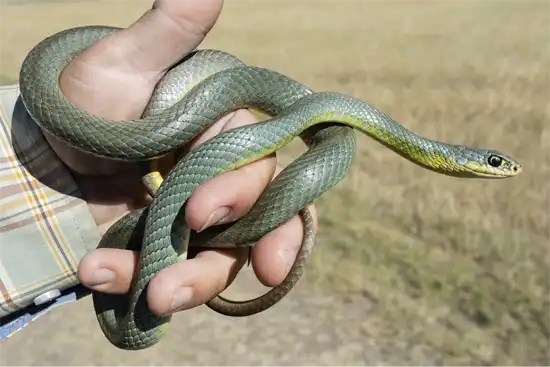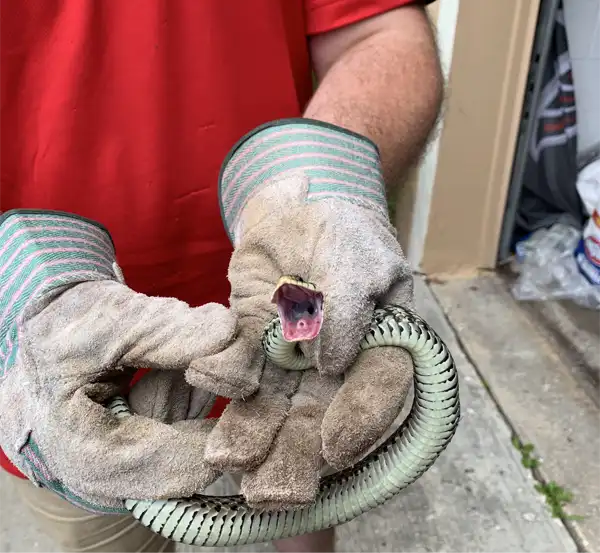Do snake repellants actually work? The answer is no, to a degree. Snake repellents are often marketed as an effective solution for keeping snakes away from your property. However, it’s important to understand the limitations of these products and their actual effectiveness.
In this article, we will explore the world of snake repellents, debunk common myths, evaluate the effectiveness of popular products like Snake Away, and discuss alternative methods that provide more reliable results in keeping snakes at bay.
Whether you’re dealing with snake encounters or looking for preventative measures, this article will provide valuable insights to help you make informed decisions about snake control and create a safer environment for you and your family.

Understanding Snake Repellents: How Do They Work?
Snake repellents are products designed to keep snakes away from certain areas. They use scents or chemicals that affect snakes’ senses, making them uncomfortable or unwilling to stay in that area. These repellents claim to create a barrier that snakes will avoid, helping to protect your property.
Snake repellents contain specific ingredients chosen for their repellent properties. Some common ingredients include naphthalene, sulfur, and essential oils. These substances produce odors that snakes don’t like, causing them to avoid the treated area.
The Problems With Snake Repellents
Based on our experiences, Snake repellents (or repellants) do not work, and if they do, it’s only temporary. Snake Repellents rely on certain scents or chemicals to deter snakes, claiming to disrupt their sensory systems and make them flee. But their effectiveness has been documented to either work temporarily, or not at all. (San Julian, 1985)
While some users may initially experience positive results, it’s important to understand the limitations of snake repellents. Here are three issues we have found with Snake Repellents:

Varying Effectiveness
One factor to consider is that the effectiveness of snake repellents can vary. Some users have reported success, while others have found them to be ineffective. This discrepancy suggests that the response of snakes to repellents is not universally consistent.
A study conducted in the University of Nebraska has found that many common substances found in snake repellents do not repel snakes at all such as Naphthalene, Sulfur, and Lime (San Julian, 1985).

Weather Sensitivity
Weather can have a big effect on how well snake repellents work. Most repellents are sensitive to things like rain. When there’s heavy rainfall, it can wash away the repellent and make it less effective. This means you might have to put the repellent on more often, which can be a hassle and cost more money. Even morning dew can wash away the repellent, so it’s important to keep an eye on the weather if you’re using it.

You Can Trap Them Inside Your Home
Sometimes, snake repellents don’t work like we expect. Instead of keeping snakes away, they can actually trap them in the treated area. This means that while snakes won’t go beyond the treated boundaries, they can still be present on your property. Repellents are not a long-term solution because the snakes are still there and will eventually move into untreated areas again. When using snake repellents, it’s important to understand these limitations and consider other methods to effectively manage snake populations.
What Actually Repels Snakes
Now that we know snake repellents have limitations, let’s find out what actually works to keep snakes away. In this section, we’ll explore effective methods to repel snakes and provide helpful insights to help you protect your property.
Frequently Asked Questions about Snake Repellents
Snake Repellent Not Working? When to Call the Professionals
Knowing when to call professionals like Virginia Snake Removal is important when dealing with snakes on your property. Here are some situations where it’s best to seek professional help:
- 1
Venomous Snakes: If you think there are venomous snakes like rattlesnakes, copperheads, or cottonmouths, it’s dangerous to handle them yourself. Call professionals who are trained to deal with these snakes.
- 2Snake Infestations: If you see a lot of snakes or keep finding them around your property, it’s a good idea to get professional assistance. They can check for entry points and remove the snakes safely.
- 3Snakes Indoors: If you find a snake inside your house or other living areas, don’t try to handle it on your own. Call professionals to handle the situation safely.
- 4Uncertainty or Fear: If you’re not sure what kind of snake it is or if you feel scared, it’s better to rely on professionals. They can identify the snake and give you advice on what to do.
